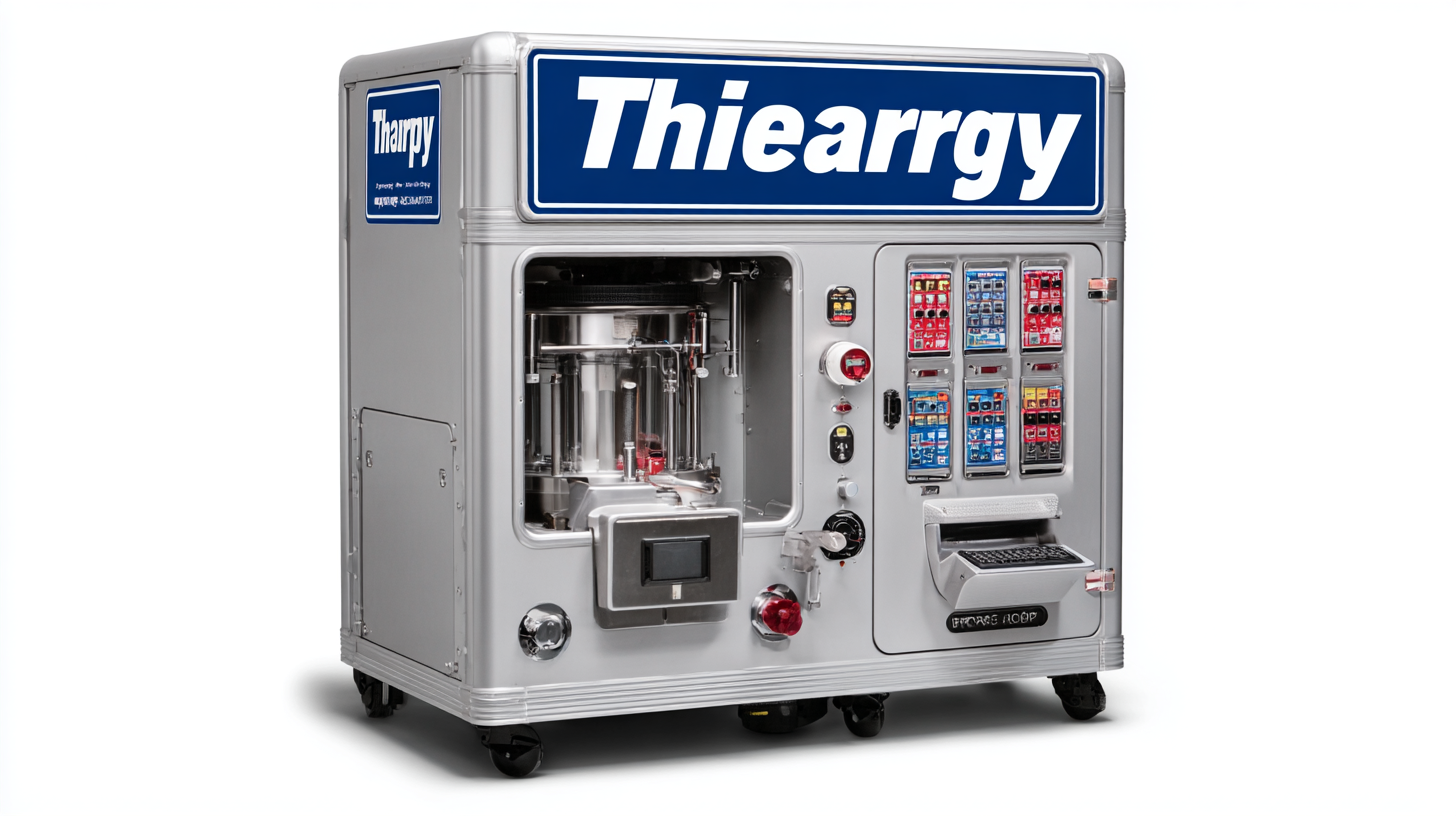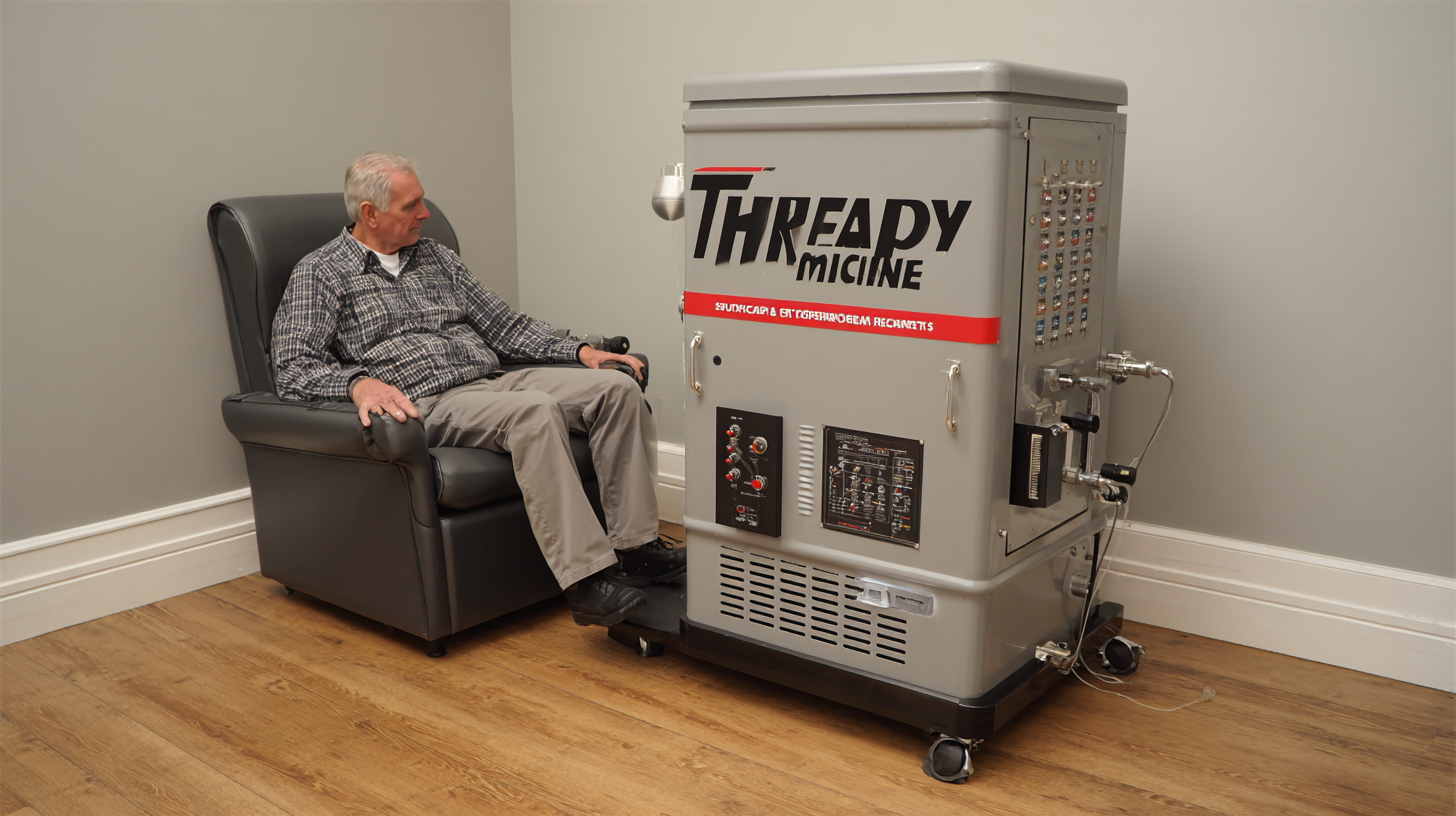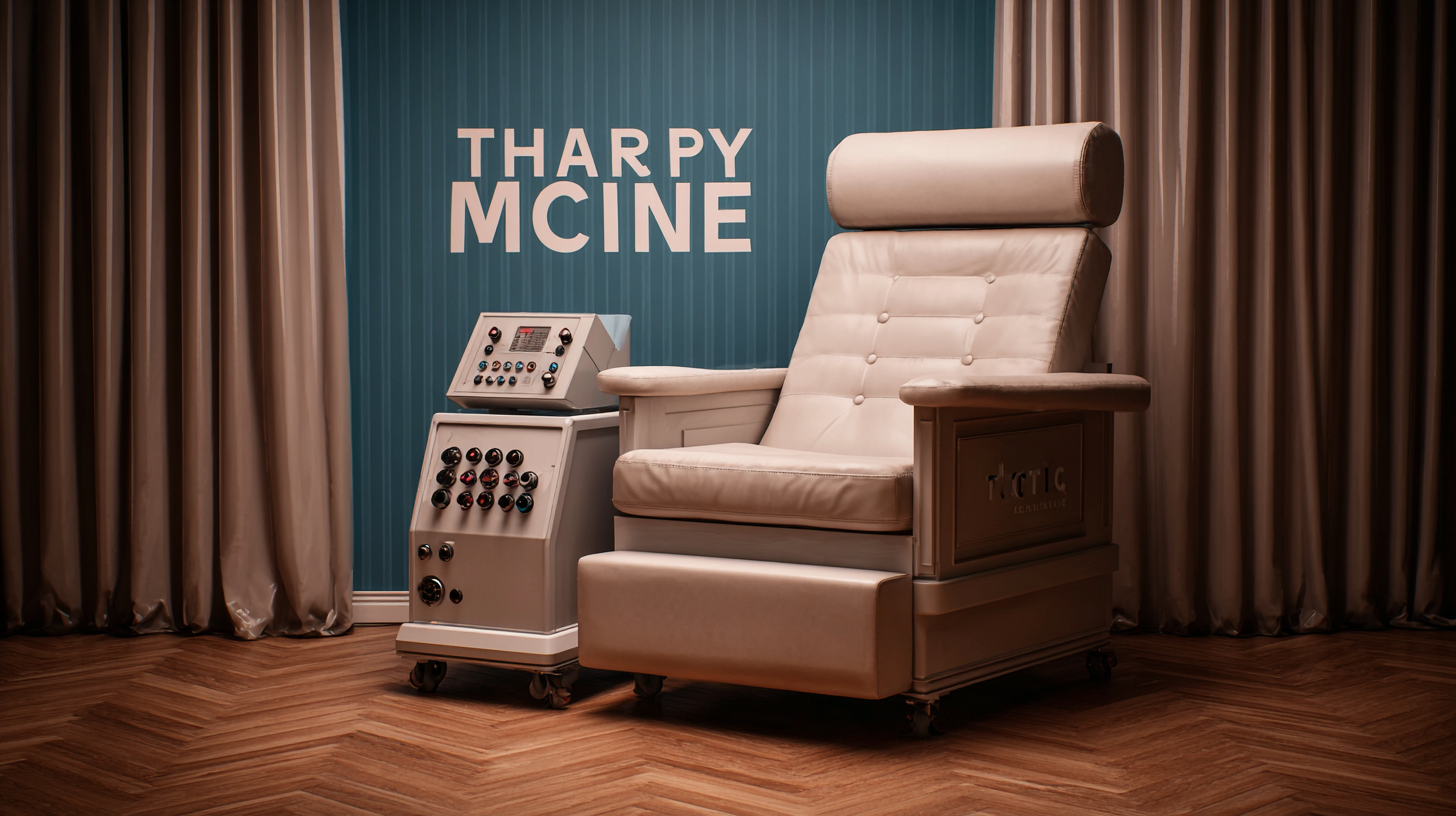Bankim Nagar, Siliguri, West Bengal
- GST NO. : 19BHDPS7640K1ZR
Finding Quality Suppliers for Best Therapy Machines with a Practical Checklist Guide
In the rapidly evolving landscape of health and wellness, the demand for effective Therapy Machines has surged, prompting practitioners and healthcare providers to seek out quality suppliers who offer the best products on the market. As we approach 2025, understanding the technological trends shaping this industry becomes crucial for informed decision-making. This blog serves as an ultimate guide, providing a practical checklist to navigate the complex process of sourcing reliable suppliers for Therapy Machines.

From evaluating product features to assessing supplier credibility, we will delve into the key considerations that ensure you choose the most effective solutions for your practice. With the right tools and knowledge, you can enhance patient outcomes and stay ahead in a competitive field, making this checklist an essential resource for anyone looking to invest in the best Therapy Machines available.
Identifying Key Industries for Therapy Machine Applications
When it comes to sourcing quality therapy machines, it's essential to identify the key industries that benefit from these technologies. The healthcare sector, particularly rehabilitation centers and physical therapy clinics, stands as a primary user of therapy machines. These facilities require reliable equipment to support recovery and enhance patient outcomes. Innovations in therapy modalities such as electrical stimulation and ultrasound therapy are increasingly adopted in these settings, driving demand for advanced machines designed for specific therapeutic applications.
Furthermore, the fitness and wellness industry also plays a significant role in the therapy machine market. Personal trainers, gyms, and wellness centers utilize various therapy devices to aid in muscle recovery, injury prevention, and overall wellness. The rising trend of combining traditional fitness routines with therapy techniques underscores the importance of finding suppliers who offer machines tailored for fitness applications. Understanding these key industries not only guides buyers in their search for quality suppliers but also helps them stay ahead in a competitive market by investing in the right technology suited for their specific needs.
Evaluating Supplier Credentials and Experience in Therapy Equipment
 Evaluating supplier credentials and experience in therapy equipment is crucial for ensuring the quality and reliability of therapy machines. Recent industry reports reveal that nearly 80% of procurement leaders emphasize the importance of a supplier's track record and certifications when selecting partners. This underscores the necessity for careful vetting of suppliers, as the appropriate credentials not only indicate reliability but can significantly affect the therapeutic outcomes for patients.
Evaluating supplier credentials and experience in therapy equipment is crucial for ensuring the quality and reliability of therapy machines. Recent industry reports reveal that nearly 80% of procurement leaders emphasize the importance of a supplier's track record and certifications when selecting partners. This underscores the necessity for careful vetting of suppliers, as the appropriate credentials not only indicate reliability but can significantly affect the therapeutic outcomes for patients.
Moreover, the shift towards sustainable sourcing has become a pivotal aspect of supplier evaluation. According to new findings, up to two-thirds of a company’s environmental, social, and governance (ESG) impact is linked to its suppliers. This statistic reinforces the necessity for procurement leaders to adopt a conscientious approach when seeking out suppliers for therapy equipment. Companies are increasingly looking for suppliers who adhere to sustainable practices and demonstrate robust ethical standards, contributing to a more responsible supply chain.
An effective checklist for evaluating suppliers should include inquiries about their sustainability initiatives, quality assurance protocols, and customer feedback mechanisms to ensure a holistic assessment of their capabilities.
Essential Features to Look for in Quality Therapy Machines
When searching for quality therapy machines, it's crucial to focus on essential features that ensure effectiveness and safety. First and foremost, look for devices that offer adjustable settings. This allows practitioners to tailor the therapy to each individual's needs, optimizing treatment outcomes. Machines with multiple intensity levels and customizable programs can cater to various conditions and patient preferences, making them versatile tools in any therapy setting.
Another important feature to consider is the machine's built-in safety mechanisms. Quality therapy machines should include automatic shut-off functions, overload protection, and user-friendly interfaces. These features not only enhance user safety but also prevent potential damage to the machine, ensuring longevity and reliability. Lastly, portability is a key consideration, especially for therapists who travel or work in multiple locations. Lightweight designs with sturdy carrying cases can make transportation effortless, allowing therapists to provide treatments wherever they’re needed.
Quality Therapy Machines Features Comparison
Practical Checklist for Assessing Supplier Reliability
When searching for quality suppliers for therapy machines, assessing supplier reliability is crucial to ensuring that you receive high-quality products that meet your needs. A practical checklist can streamline this process, helping you to focus on the most critical aspects of supplier evaluation. Start by verifying the supplier's credentials, including industry certifications, years in business, and customer reviews. This initial step not only establishes trust but also offers insights into their track record within the therapy equipment market.

Next, consider the supplier's production capabilities and inventory management. A reliable supplier should be transparent about their manufacturing processes and should have robust systems in place to maintain quality control. Additionally, assess their ability to deliver on time and manage supply chain disruptions, which are essential in the fast-paced healthcare environment. Lastly, communication plays a vital role in supplier reliability. Choose a supplier that is responsive, values collaboration, and can provide ongoing support for your therapy machine needs. By adhering to these checklist items, you can confidently select suppliers that align with your operational goals and uphold the highest standards of quality.
Case Studies Highlighting Successful Therapy Machine Implementations
When seeking quality suppliers for therapy machines, examining case studies can provide valuable insights into successful implementations. For instance, a rehabilitation center's deployment of a state-of-the-art electrical stimulation machine resulted in a 30% increase in patient recovery rates. By studying such examples, potential buyers can gauge the effectiveness of specific machines and confidently choose a supplier that aligns with their needs.
Tips for evaluating case studies include assessing the metrics that matter most to your specific goals, such as patient outcomes and operational efficiency. Look for testimonials from healthcare professionals who have firsthand experience with the equipment. Additionally, consider how the therapy machine was integrated into the existing systems and workflows, as this can often make or break the success of new technology in a care setting.
Another noteworthy example comes from a sports clinic, which successfully incorporated advanced ultrasound therapy devices into their treatment protocols. The clinic reported not only improved recovery times for athletes but also enhanced patient satisfaction. When reviewing such success stories, ensure to identify common attributes like training provided by the supplier, ongoing technical support, and how challenges were overcome during implementation—these factors can greatly influence your decision-making process.
Finding Quality Suppliers for Best Therapy Machines with a Practical Checklist Guide - Case Studies Highlighting Successful Therapy Machine Implementations
| Case Study | Therapy Machine Type | Supplier Type | Implementation Date | Results Achieved |
|---|---|---|---|---|
| Case A | Ultrasound Therapy Device | Local Manufacturer | 2023-01-15 | 20% increase in patient recovery rate |
| Case B | Electrical Stimulation Unit | International Supplier | 2022-10-20 | Improved muscle strength by 30% |
| Case C | Laser Therapy Device | Regional Distributor | 2023-03-02 | Reduction in pain reported by 85% of patients |
| Case D | Therapeutic Massage Chair | Local Artisan | 2022-11-12 | Customer satisfaction rating increased by 40% |
| Case E | Cryotherapy Machine | Global Tech Firm | 2023-05-30 | Enhanced recovery time by 50% |

